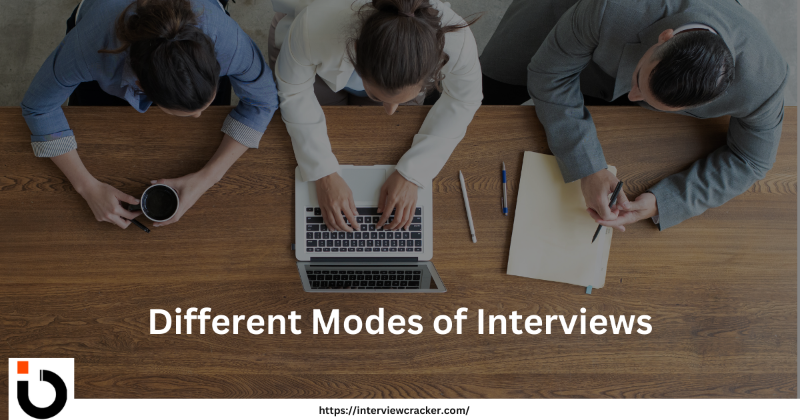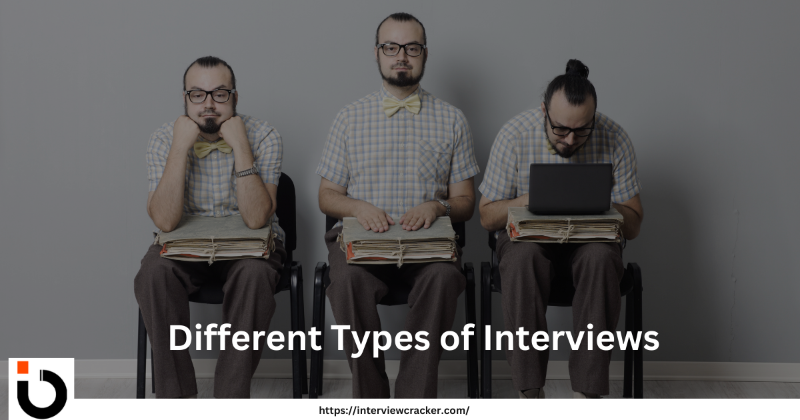What is an Interview?
An interview is a conversation between two or more people, typically between a prospective employer and a candidate to gather information, assess qualifications, or make hiring decisions. Interviews are commonly used to evaluate job candidates, but they can also serve various other purposes, such as research, journalism, or information gathering.
Who is an Interviewer?
An interviewer is an individual or a group of individuals who conduct interviews. The interviewer is typically a representative of the employer or hiring organization responsible for evaluating and assessing job candidates. The interviewer’s role is to ask questions, gather information, and make judgments about the candidate’s qualifications, skills, and fit for the position or role being considered. Interviewers may also provide information about the company and answer questions from the candidate.
Who is an Interviewee?
An interviewee is an individual who participates in an interview. The interviewee is the person seeking employment or a position within an organization. The interviewee’s role is to respond to questions, provide information about their qualifications, experiences, and skills, and present themselves as a potential candidate for the position. The interviewee aims to demonstrate their suitability for the role and make a positive impression on the interviewer or interview panel.
Job interviews come in various formats, each with its own dynamics and expectations. Knowing what to expect and how to prepare for different interview types can significantly boost your confidence and performance.
The Different Types of Interviews
- One -on-One Interviews
- Panel Interviews
- Behavioral Interviews
- Case Interviews
- The Puzzle Interview
- The Group Interview
- On Campus Interview
- Mock Interview
What is One-on-One Interviews?
One-on-one interviews are the most common type. You’ll meet with a single interviewer, typically your potential supervisor or HR representative. To prepare for these interviews, research the company thoroughly, practice common interview questions, and be ready to discuss your qualifications and experiences in detail.
What is Panel Interviews?
Panel interviews involve facing a group of interviewers simultaneously. Each panel member may have a different focus, such as technical skills, cultural fit, or leadership potential. Prepare by studying the backgrounds of panel members, addressing each person while responding, and maintaining eye contact with everyone.
What is Behavioral Interviews?
Behavioral interviews are structured around the idea that past behavior predicts future performance. Expect questions like “Tell me about a time you faced a challenge at work.” Answer using the STAR method: Situation, Task, Action, and Result. Practice by recalling specific examples from your work history.
What is Case Interviews?
Common in industries like consulting and finance, case interviews assess your problem-solving skills. You’ll be presented with a real or hypothetical business problem and asked to analyze and propose a solution. Prepare by practicing with case study materials and honing your analytical skills.
What is The Puzzle Interview / Analytical Interview?
A puzzle interview is a type of job interview in which the candidate is presented with a puzzle, brainteaser, or problem-solving challenge to assess their analytical thinking, creativity, and ability to handle unexpected situations. The purpose is to gauge how well the candidate can think critically and approach complex problems. These puzzles can vary widely in nature and may involve logic, math, or abstract thinking.
What is The Group Discussion Interview?
Group interviews are a unique format that some companies choose for their hiring processes. In these sessions, multiple candidates are assessed simultaneously. Understanding and excelling in group interviews can give you a competitive edge. Here’s what you need to know:
To excel in various interview formats, adapt your responses to the specific interview type. For instance, emphasize your teamwork and leadership abilities in group interviews, while highlighting your analytical skills in case interviews. Tailoring your approach showcases your versatility and suitability for the role.
What is On Campus Interview?
Commonly used by universities and colleges, on-campus interviews allow employers to interview students directly on campus for internship or job opportunities.
What is Mock Interview?
A mock interview is a practice interview session. It is a simulated interview conducted to help individuals prepare for real job interviews. Mock interviews are a valuable tool in interview preparation, as they enable candidates to fine-tune their responses, gain confidence, and increase their chances of performing well in actual job interviews.

What are The Different Modes of Interview?
There are 3 different modes of interview:
- Telephone/ Phone Interview
- Face-to Face / In person Interview
- Video Interview
1. Telephonic
Conducted over the telephone, phone interviews are often used as an initial screening method to assess a candidate’s qualifications and suitability for an in-person interview.
2. Face-to Face / In person Interview
Traditional face-to-face interviews where the interviewer and interviewee meet in the same physical location. These interviews may take place in an office, conference room, or other designated meeting spaces.
3. Video Interview
Video interviews can be conducted in real-time (synchronous) or recorded (asynchronous). Synchronous video interviews involve both parties meeting on a video conferencing platform, while asynchronous video interviews allow candidates to record their responses to preset questions and submit them at their convenience. In common language, video interviews are also called Zoom/Skype interviews. These video interview types are conducted through platforms like Skype or Zoom, which allows for remote communication. These are often used for long-distance interviews or when in-person interviews are not feasible.
The choice of interview mode depends on factors such as the nature of the position, the organization’s preferences, and logistical considerations. Both interviewers and interviewees must prepare accordingly based on the selected interview mode.
Remember, regardless of the interview format, thorough preparation, confidence, and effective communication are key to success.

